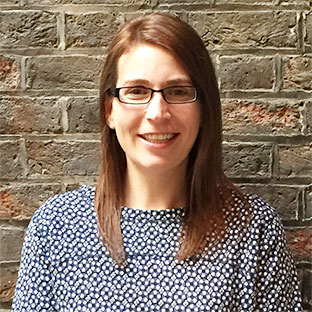March has been National Bed Month.
For me, this is an event that I can really get into, so to speak. I have always taken a professional and personal interest in sleep quality, even more so since having a child, when life and sleep can become so disrupted that you hardly know which way is up, let alone have the energy to venture there to find your bed.
There’s a wealth of research into how quality of sleep affects us, and many an argument as to how much of it we need. But the general consensus is that poor sleep equals poor health, reduced performance and less effective coping.
In the recovery field, there is a commonly used acronym – HALT. It stands for Hungry, Angry, Lonely, Tired, and it’s what you are supposed to stop and assess yourself for if you are struggling with cravings. I don’t know where it originated from but I’ve found it to be of immense value, not only working in the recovery field, but relevant to my action around my own wellbeing.
Although not necessarily easy, I find the first three to be the most immediately solvable issues. Hunger, of course, can be remedied by paying attention to diet and eating regularly. Anger, can be resolved by dealing with the situation, either directly or by finding ways of letting it go – counselling, meditation or physical activity for example. Loneliness can be a huge challenge for people – but Apps like Social Mirror can be of benefit, and most communities offer social groups if you are willing and able to get out there and engage. Tiredness, I think, can be the most challenging of these issues to control.
 There are of course, many natural ways to improve the quality of your sleep. In recovery, the use of ‘sleep tea’, a combination of herbs such as chamomile and lavender is commonly used. Sour cherry juice has also been proffered as a proven natural way to improve sleep. Yoga and meditation is used for relaxation and to reduce anxiety. But how many of us, in recovery or elsewhere, make getting quality sleep a daily focus? If you are anything like me, sleeping is not the period of the day that I attend to the most, but it is probably what I should prioritise. Anxiety about specific events can keep me awake at night, and that is the time that a person needs sleep the most.
There are of course, many natural ways to improve the quality of your sleep. In recovery, the use of ‘sleep tea’, a combination of herbs such as chamomile and lavender is commonly used. Sour cherry juice has also been proffered as a proven natural way to improve sleep. Yoga and meditation is used for relaxation and to reduce anxiety. But how many of us, in recovery or elsewhere, make getting quality sleep a daily focus? If you are anything like me, sleeping is not the period of the day that I attend to the most, but it is probably what I should prioritise. Anxiety about specific events can keep me awake at night, and that is the time that a person needs sleep the most.
We see sleep problems a lot in this sector, especially in the period after people have detoxed from substances. Waiting for your body to reach a state of equilibrium again can be an arduous process, and people describe waking in a sweat following dreams where they have drunk alcohol or used drugs, when that is the exact thing they are working so hard to avoid. Often GPs will prescribe sleeping tablets, but these of course are not meant to be a long term solution, and do not serve to provide any sort of ‘sleep training’ or encourage us to think further about our own role in getting good sleep.
own role in getting good sleep.
The New Economics Foundation created a list of five everyday actions that people can take to improve wellbeing. So much of our own work within Whole Person Recovery is anecdotal, but based on that, and my own experience, I would add a sixth ‘way to wellbeing’ – work to improve your sleep.
Perhaps, if we all spared thirty minutes a day to take action around our sleep - taking a warm bath before bed, meditating, writing down our thought summary of the day, or doing some active relaxation, our wakeful periods may be enhanced, and we could really focus on the other five ways.
Hopefully, you have managed to stay awake whilst reading this blog……………


Join the discussion
Comments
Please login to post a comment or reply
Don't have an account? Click here to register.
Thanks for sharing informative blog. You are really doing a good job. Now a days sleeping problems are increasing day by day due to hectic lifestyle. As you discussed above yoga or meditation is used for relaxation to overcome sleeping problems but after doing these activities if there will no change in sleeping problems then people have to go for medications and doctors usually suggest them ambien or zolpidem sleeping tablets. I read more about how sleeping tablets work from here: http://www.sleeping-tablets.or...